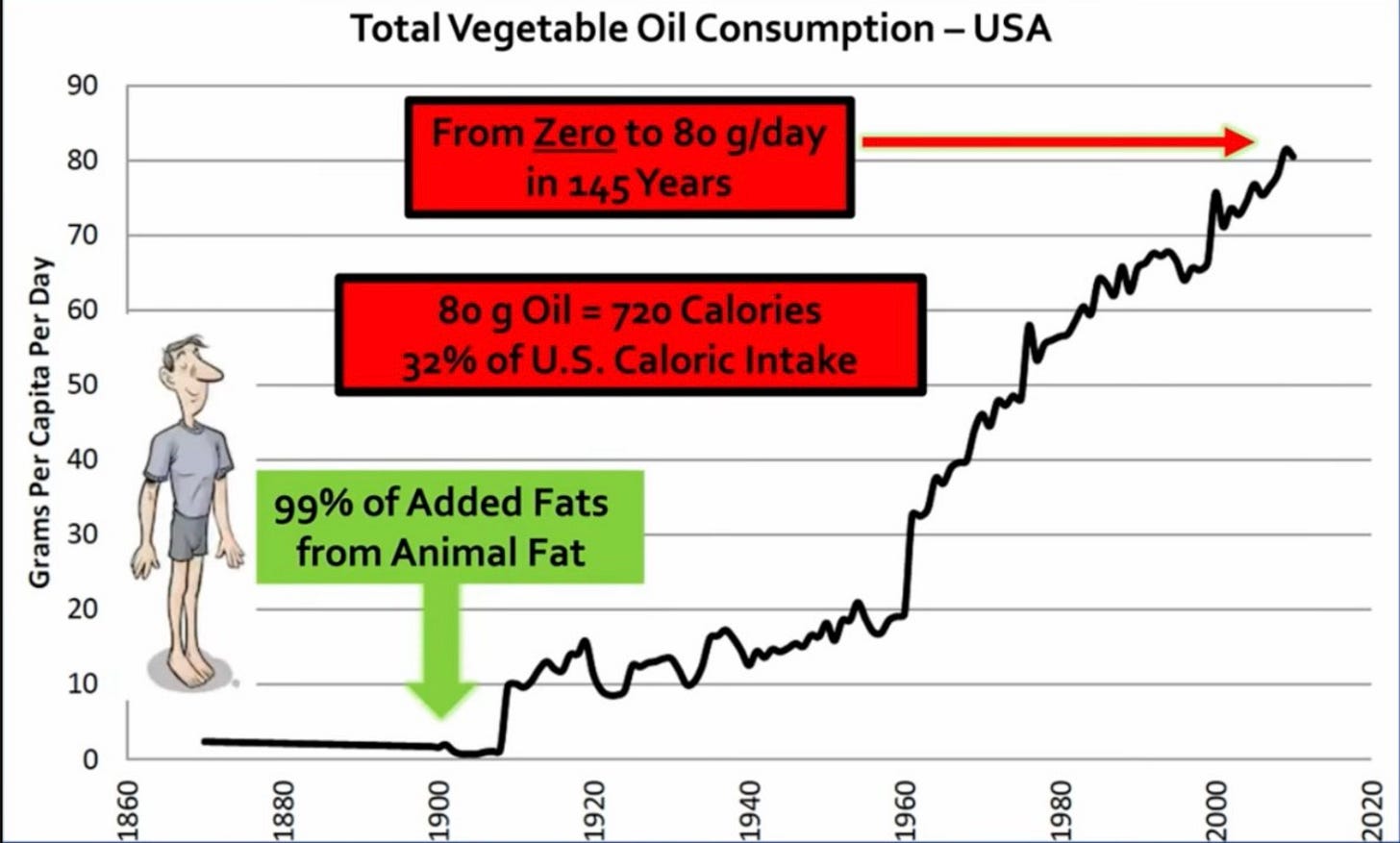Corruption!
The 5th C in Carnivorism
Mr. Skeptical folds his arms, “So you’re really going to do this? Talk about corruption?”
“Yes, it’s the 5th C in carnivorism,” I say this casually, but I know what he’s getting at.
“It’s a little ironic, don’t you think?”
I smile, “I understand how one can see it that way, yes.” He’s referring to my past and how I transitioned from practicing chiropractic to becoming a personal trainer. It was not actually a transition; it was very abrupt. It was a rough time in my life, and I spent time in Federal Prison. That personal story I describe in the 1st link below.
Subconscious Fat at 30,000 Feet
We often picture corruption as cigar smoke curling around mahogany desks. Backroom deals. Envelopes stuffed with cash. But in the world of modern medicine and nutrition, corruption wears a lab coat and carries a clipboard. It's sanitized. Peer-reviewed. And most damning of all—it’s profitable.
When the average American hears “Big Pharma,” they might imagine price-gouging insulin. When they hear “Big Food,” they think of addictive junk snacks and rainbow-colored cereals endorsed by cartoon tigers. But they rarely connect these behemoths with the research that underpins health recommendations. The USDA food pyramid. The cholesterol-heart disease hypothesis. The vilification of red meat and animal fats.
But let’s say it plainly: corruption doesn’t need to be overt. It only needs to be incentivized.
“For example, I, as a personal trainer, get marketed all the time by the Wheat Foods Council.
“The Wheat Council even wants me to become an ‘expert’ in nutrition, gaining CEUs (Continuing Education Credits). It would go against everything I believe in. They’d have to expunge from my brain the books I read, Grain Brain by David Perlmutter, MD, and Wheat Belly by William Davis, MD.”
“I’m sure someone would volunteer to give you a lobotomy. I can help,” says Mr. Skeptical with a smile.
I ignore his arrogant remark: “I feel sorry for new trainers who might want to earn more CEUs to charge more for their services, but they have to learn misinformation that can cause long-term harm and definitely won't help them get results for their clients.”
“You’re not seriously claiming that all of modern medicine is bought and paid for, are you?” says Mr. Skeptical, lifting an eyebrow the way only he can.
“Not all. Many medical doctors are good people and got into medicine for the right reasons. But they are still taught to administer medicine, and that education is funded by pharmaceutical companies who have PROFIT as their motive.”

Subconscious Fat at 10,000 Feet
“Let’s look at how the gears grind. I always come back to this number: a 2013 study found industry-funded trials were 3.6 times more likely to produce positive results. That’s not a rounding error. That’s an incentive structure with a stethoscope.
Universities rely on grants from pharma and food giants. The FDA and USDA rotate staff with companies they’re meant to regulate. And junk studies? They get press releases, not peer scrutiny. When Harvard publishes a correlational study claiming red meat increases mortality by 13%, nobody mentions the breakfast muffins and cola riding shotgun.”
“Correlation, not causation,” echoes Mr. Skeptical. “Did you major in cliché or conspiracy?”
He’s not wrong. But he’s also missing the forest for the tree-shaped sugar cereal.
Subconscious Fat at Eye-Level
Mr. Skeptical's eyes narrow in on me. “So what does this have to do with meat?”
“Plenty. The anti-meat crusade isn’t rooted in irrefutable evidence—it’s flavored by ideology and funded by profits. The AHA (American Heart Association) loves whole grains and the companies behind them. Red meat is “probably carcinogenic,” but Lucky Charms earns a “heart-healthy” stamp." Meanwhile, the carnivore diet—rich in bioavailable nutrients and low in insulin-spiking carbs—gets mocked like it’s a Flat Earth convention.”
“Anecdotes aren’t data,” Mr. Skeptical sneers.
“True. But when data’s bought, sometimes anecdotes are the only currency left.”
Practical Suggestions and Conclusions
“If you're still waiting for a government-funded study to tell you bacon is better than bran flakes, you may be waiting a while—possibly while hooked up to a statin drip and sipping a low-fat smoothie. The faster route? Trust your own digestion. If your joints stop aching, your brain fog clears, and your belt loosens after a few weeks of eating like a plains-dwelling predator, maybe that’s the kind of peer review that matters.”
But I know Mr. Skeptical, of course, isn’t buying it.
“So let me get this straight,” he says, rubbing his temples like I’ve given him a meat-induced migraine. “You’re suggesting we ignore decades of expert consensus and instead trust... what? Our abs?”
“Yes, precisely. Especially if they’ve started to reappear.”
“Fantastic. Next, you’ll tell me Big Broccoli is in on it, too.”
“Don’t laugh. That green cartel has its roots everywhere.”
Be aware.
Other links related to this post:
From Chiropractor to Fitness Trainer
Why I Avoid Wheat
The Tale of Two Scientists
PS Links on LinkedIn, Facebook, and Instagram. Full disclosure: Chat GPT was used to research and enhance this post.






